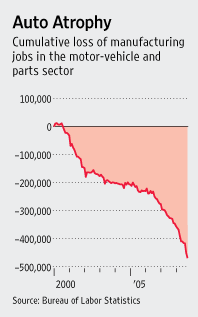America's Soft Power We Don't Even Realize We Have
A while back I took at Teaching Company course on Victorian Great Britain. The professor said something about the Victorians that really stuck with me -- he said that the British never understood the soft power they had in the world. The world wanted to dress British and emulate British manners. They read British authors. They desperately wanted to send their children to British schools. Even the native revolutionaries in their colonies sometimes revolted in very British ways. Sure the leaders of the Indian National Congress harbored enormous resentments against the arrogance of British power, but all their leaders were British-schooled and cast many of their arguments in terms from the British enlightenment.
I was thinking about this a while back when I was in France and attended a show of local French artists. As with much modern art, much of it incorporated bits of pop culture. And about 98% of that was American and to a lesser extent British pop culture. Sure, some of it was used ironically, but American culture is consumed everywhere in the world. I must have seen 5 or 6 artists using Captain America imagery alone in their art in a not-at-all hostile or ironic way.. America in the 20th and 21st century is in the same position as the British in the 19th century, and we are probably just as unaware of that soft power and pissing it away just as surely with our slamming around the world like a bull in a china shop.
And speaking of China, it is simply insane in my mind to turn them into our enemies. Whatever the top Chinese officials are after, much of the population wants to be like Americans. They want to come to our schools and wear our fashions and watch our movies and TV. We have had several exchange students from China live with us and they treat getting to spend time living in America like having hit the lottery. We have watched one woman who goes by "Cat" in the US all the way from high school to college in America to getting a good banking job. She first showed up at our house looking exactly like Ching "Honey" Huan from Doonesbury -- the hair, glasses, clothes, everything. She now looks, dresses, and talks like any young American. For a while her Instagram was dominated by pictures of her and her friends at Big 10 football games.
I have been consumed of late with other things in my life, and really have not had the chance to address the increasingly insane extent of the Trump Administration's economic nationalism. But go to Don Boudreax's and Mark Perry's blogs and scroll through them -- they do a much more eloquent job of defending free trade than I can.
